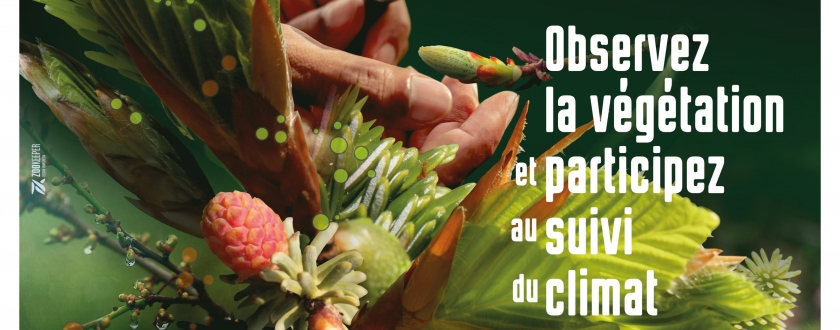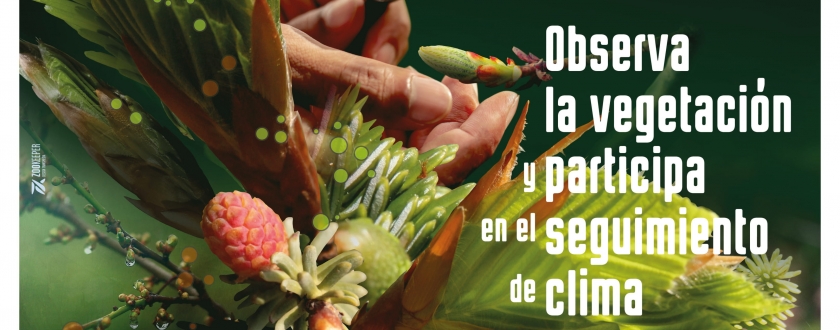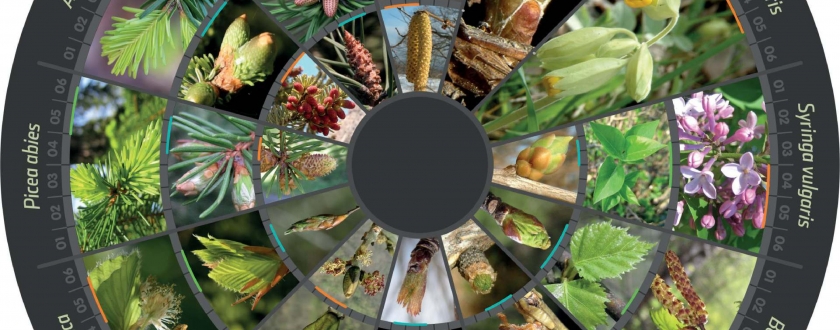PHENOCLIM
Description of the case study
PHENOCLIM is a scientific and educational programme that invites the public to contribute to the monitoring of the phenological state of key species in the Pyrenees region induced by climate change. This programme began in 2014 in the Alps with the CREA Mont-Blanc (Centre de Recherches sur les Écosystèmes d'Altitude) initiative, based on two scientific disciplines: Phenology and climatology to demonstrate the impacts of climate change on nature’s calendar and rhythms. The data collected from the various mountain ranges helps researchers better understand how ecosystems operate in each season of the year so that the effects of climate variations in the environment can be studied.
In the Pyrenees region, PHENOCLIM is led by the Living Pyrenees Education Network (led and coordinated by the LPO), under the coordination of the Conservatoire Botanique Nationale Pyrenés Midi-Pyrenées (CBNPMP) and the Pyrenean Climate Change Observatory (CTP-OPCC). The Pyrenees region’s adherence to this initiative has been promoted and formalised within the framework of the OPCC ADAPYR and POCTEFA FLORAPYR projects.
The challenge of climate change requires major study and analysis work from the scientific collective, but also major efforts in awareness-raising, information, and education tasks for the population at large regarding expected medium- and long-term effects. The implementation of any policy aimed at changing habits must go hand-in-hand with an intensive public education and awareness-raising process. In addition, having the public participate in observation activities to reach appropriate levels of commitment and awareness is key.
The PHENOCLIM citizen science project is aimed at these two key targets:
» Obtaining records on variations produced in the phenology of 13 Pyrenean flora species (consult the species sheets) that are sufficient in terms of quantity and quality, with the goal of having the scientific community study this data and inferring the corresponding projections on the climate emergency’s impact on these species.
» Raising the awareness of the public in general on said effects, having them participate in the collection of these observations and making them aware of the reports issued and the projections of future calculations.
The results obtained are included in the various reports issued by the CREA Mont-Blanc scientific team based on the observations made by the public. All of these reports can be viewed on the website.
In terms of new observer registration and participation results, the programme had a total of 85 observers throughout the Pyrenees region in December 2020, with a total of 3,845 species observations carried out.
Case study developed and implemented as a climate change adaptation measure.
REPV, CBNPMP, CTP-OPCC, CREA Mont-Blanc
Additional Information
The PHENOCLIM project is a result of the actions of CREA Mont-Blanc, initially for the Alps. Later, it was extended to the Pyrenean massif through CBNPMP mediation, with the collaboration of the CTP-OPCC and led by REPV (LPO). The latter is comprised of a total of more than 65 environmental education entities throughout the Pyrenees region, with participatory, cooperative, collaborative, and co-creation dynamics.
In terms of PHENOCLIM’s dynamics, decision-making is collective among the various territorial managers responsible for leading the programme.
Success factors:
The ability to transfer results obtained to the public through different reports can be considered to be one of the project’s success factors.
Limiting factors:
As with all citizen science projects, PHENOCLIM is affected by two limiting factors, although they could be considered structural for projects of this kind:
» The existence of a large volume of invalid observations due to a lack of observer knowledge that must be corrected by scientific teams once detected.
» The programme’s abandonment rate once three years (as an average term) have passed.
The PHENOCLIM project does not have a cost-benefit type estimation, although the relevant benefit of obtaining cost-free observations for the use of scientific teams should be noted.
As previously mentioned, PHENOCLIM has been made dynamic in the Pyrenees region by actions planned within the framework of the OPCC ADAPYR and POCTEFA FLORAPYR projects.
01/01/2017 (in progress)
Reference information
PYRENEAN CLIMATE CHANGE OBSERVATORY
Avenida Nuestra Señora de la Victoria, 8
22.700 - Jaca
Huesca - España
+34 974 36 31 00
info_opcc@ctp.org







